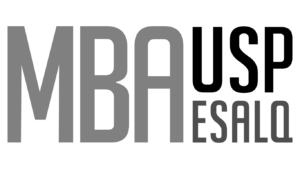One of the main challenges of living in an increasingly technological and integrated society is to adapt to the changes while being attentive to the great and accelerated flow of information we receive. Therefore, lifelong learning is an important and continuous process of understanding education and training.
This concept considers learning as an activity beyond the limits of formal school systems (from basic education to post-graduation). In lifelong learning, acquiring knowledge and abilities is a process that occurs throughout life.
Lifelong learning refers not only to a way of thinking about education in the 21st century, but also to the corporate environment, functioning as a strategy of professional training.
Want to know more about this process and how to include it in your life? Come along with us!
A little bit of history
The term lifelong learning emerged in the 1970s, but gained more prominence during the 1990s with the concept of education that exceeds the limits of the institutions and any barriers of age or social level.
However, it was from a report by the International Commission on Education for the 21st century of Unesco, 2010, that the term started to gain more popularity.
This process stimulates personal and professional development in a voluntary way, proactive and permanently, from learning experiences. And this is already being valued in companies with organizational culture focused on the use of lifelong learning for improvement and development of employees.
The reasoning you already know: in a job market so competitive and with so much offer from professionals, it is no longer enough to dominate only one technique for a role. The process of continuous education strengthens other abilities that help in the more complex challenges of corporate environments.
4 pillars
For you to get acquainted with lifelong learning, how about checking out the four pillars of education that help support this concept?
- Learning to know: it seems somewhat redundant, but finding the best way to understand, build and rebuild knowledge is a necessity. How can this process be pleasurable to you? If the objective of continuous learning is to also motivate the critical sense and the abilities of reflecting and positioning one-self in front of conflicts, then it is necessary to instigate curiosity and attention, and develop autonomy to dominate different languages. This pillar is also about learning to think and not just reproduce thoughts.
- Learning to do: playing a function is no longer a differential of professionals, who now need social and emotional capacity to face the challenges of the job market. A scenario of home office, for example, with teamwork being performed remotely, can be an opportunity to evaluate the tendencies of employees to adapt.
- Learning to live together: one of the skills acquired throughout life is the ability to understand others and establish social bonds to manage conflicts. Participation in common projects, cooperation and sum of individual knowledge in the benefit of the collectivity allows the exchange of experiences, activity mentioned above as very important for lifelong learning and for any work environment.
- Learning to be: the way you act in relation to your ability to learn from each experience determines the type of person you are becoming. Autonomy, discernment and responsibility are some terms that can guide the continuous formation of who you are. The learning process should develop potentials in people, such as sensitivity, memory, logic, ethics, creativity, initiative and aptitude for communication.
Advantages
Going back to the beginning of our conversation, technological advances allow lifelong learning to be more accessible and provide the dissemination of knowledge in a more rapid and simple way. Education, previously restricted to formal environments, is increasingly present in new spaces, through e-learning, or electronic learning, including mobile environments, such as cellphones.
New course formats and classes are emerging every day, allowing your education process to always continue. With the recent pandemic of coronavirus (Covid-19), for example, society saw more autonomous processes of learning, based on 100% digital classes, which preserve social distancing, from themes such as physical activities, languages, cut and sewing and crafts, music, among others.
All this besides the existing distance education post-graduation platforms, as is the case with the MBAs USP/Esalq.
This online format of transmitting knowledge has numerous advantages, such as the possibility of tasks and time management, adhering to your routine and work rhythm and other personal demands to the availability of attending the classes.
If you want to know more about distance education courses, we have a complete material on the subject here.
Did you enjoy learning more about lifelong learning? How about sharing this content with the people you know and who also want to keep the constancy of continuous learning?


Muito bom o Texto!!